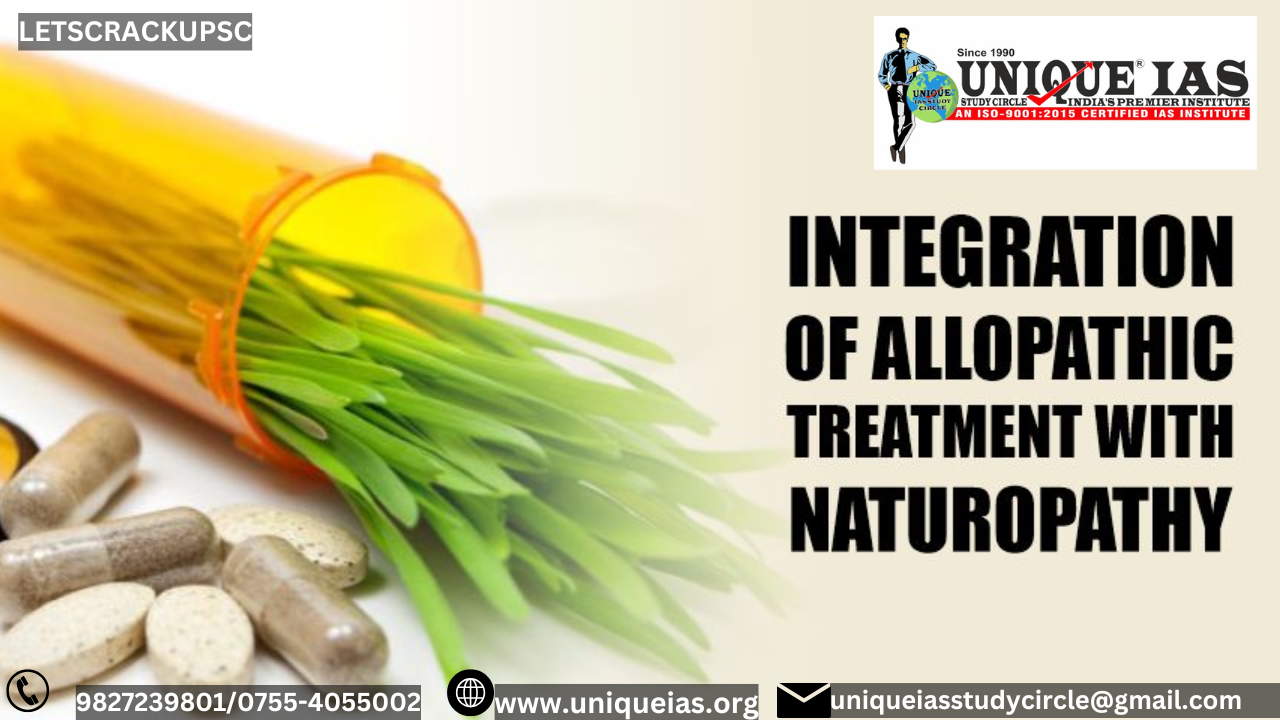
Integrating Homeopathy and Allopathy
Context:
In a recent directive, the Maharashtra Food and Drugs Administration has allowed homeopathic practitioners who have completed a certificate course in modern pharmacology to prescribe allopathic medications.
What is Allopathy?
Allopathy, or modern medicine, focuses on treating diseases by targeting their symptoms and underlying causes. It uses scientifically validated drugs, surgeries, and advanced technologies for diagnosis and treatment. Allopathic treatments are fast-acting and often used in emergencies.
What is Homeopathy?
Homeopathy is a form of alternative medicine based on the principle of “like cures like.” It uses highly diluted natural substances to stimulate the body’s self-healing mechanisms. Homeopathy emphasizes holistic care, considering the physical, emotional, and mental well-being of patients.
Homeopathy differs from Allopathy:
|
Aspect |
Homeopathy |
Allopathy |
|
Approach |
Treats the root cause by stimulating the body’s natural healing process. |
Targets symptoms and specific organs using drugs and surgeries. |
|
Medications |
Uses highly diluted natural substances. |
Relies on synthetic, machine-made pharmaceutical drugs. |
|
Side Effects |
Minimal side effects due to dilution. |
Side effects can occur due to potent drugs or invasive treatments. |
|
Focus |
Holistic approach addressing overall well-being. |
Disease-specific approach, focusing on immediate symptom relief. |
|
Speed of Action |
Gradual and long-term effects. |
Quick and effective, especially in emergencies. |
---------------------------------
© 2026. Unique IAS Study Circle All Rights Reserved. | Designed & Developed by: G-INFOSOFT TECHNOLOGIES